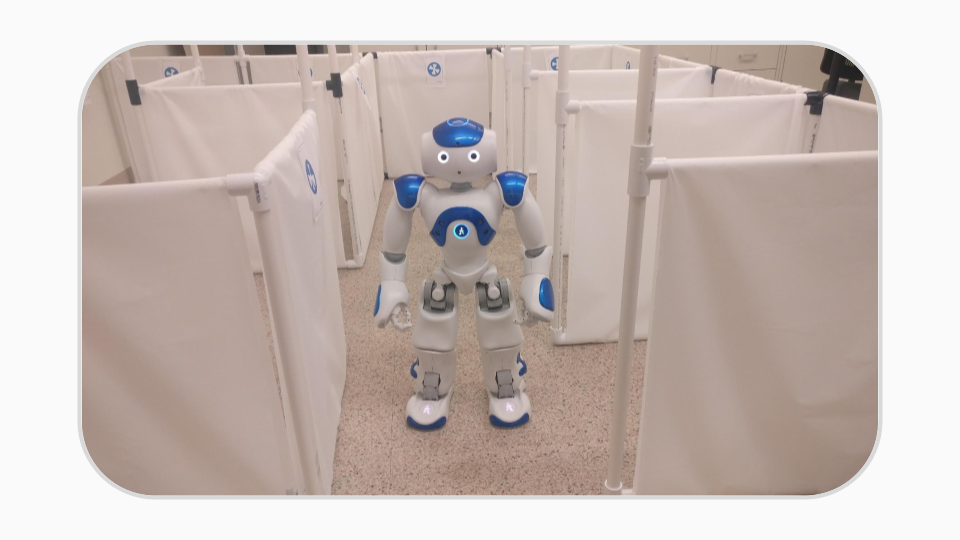
Client: Florida Conference on Recent Advances in Robotics
Date: May 9, 2018
Categories: Artificial Intelligence / Data / Research / Robotics / Simulation
While the Nao humanoid is among the most advanced intelligent robots accessible to the global public, it lacks high-level support for advanced intelligent walking activities. The robot has remarkable lower-level intelligence embedded into itself, such as artificial life with breath motions, and reasonable situation awareness with human face recognition and tracking. It also has motion control support in terms of unreliable distance or velocity-based commands for walking. However, building high-level intelligent applications on such robots still requires significant research and effort. In this work, we propose a framework of Artificial Intelligence (AI) models that create a platform for easy high-level tasks specification and implementation. The models are trained using a Nao humanoid undergoing experimentation and the results are evaluated based on a set of high-level tasks implemented with standard AI algorithms. The models are described as well as the test-beds and benchmarks used for their evaluation. The work proves the large potential that humanoids hold in the area of applications offering human support in daily activities.